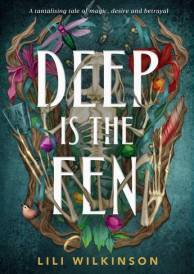Rosie Thomas Telstra and Project Rockit Cyber Safety Interview

Rosie Thomas Telstra and Project Rockit Cyber Safety Interview
Aussie school kids are being urged to think twice about what they post online in 2014, as the first wave of digital natives, children with an established online presence, get ready to start high school.
Telstra's Cyber Safety survey asked 1,001 young Australian adults aged between 18 and 25 years to reflect on what it has been like growing up with social media and the internet and what advice they would give those entering high school today.
Eighty two per cent of people surveyed did not realise the long-term impact their posts could have, with more than two-thirds saying they were concerned about their online reputation. Fifty-two per cent said they regretted content they had posted with 48 per cent admitting that almost half of what they posted was done so out of boredom.
When asked what advice they would give their younger self about the internet, the number one tip provided by those surveyed was -think carefully before posting'.
Telstra's Manager of Cyber Safety, Shelly Gorr, said the results show that today's culture of online sharing has changed society's notions of privacy forever and that it is important to equip children with tools and advice to participate in the digital world safely.
'While the online world creates amazing learning, entertainment and sharing opportunities for young people, we need to equip them with the skills to deal with what they may encounter in the digital world.
'We know that parents play an important role in educating young people about how to stay safe online. As families get ready to go back to school we're encouraging parents to talk to their children about their digital lives, what it takes to be safe online and how to create a positive digital footprint.
'Ongoing conversations with your children about cyber safety essentials such as when to share personal information online, handling approaches from cyberbullies and applying social network privacy settings could avoid a lot of regret in the future," said Ms Gorr.
Ninety-nine per cent of the 18-25 year olds surveyed believe teens need cyber education and 85 per cent believe this education should come from parents. Forty-five per cent of those surveyed said they wished their parents had told them to -think' before posting.
Sixty per cent of survey respondents admitted they are more concerned now than when they were as young teens about the impact their online reputations can have in the offline world.
Rosie Thomas, the cofounder of anti-bullying and leadership organisation Project Rockit, said the Telstra research shows that children heading into the schoolyard armed with digital devices should be empowered to stand up for themselves and others online.
'Young people can take ownership of their own online brand and key to this is understanding how to make the most of the online opportunities for themselves and their mates.
'Social media and the internet is an awesome place for breaking down social barriers and harnessing people power to do the right thing. We need to give young people the tools to make the most of everything the internet offers, including the strength to stand up and be leaders in both the online and offline worlds," said Ms Thomas.
Telstra's Back to School Online Safety Tips For Parents:
1. Talk with your kids about their digital lives and let your children know you're always there for them
2. Protect personal information – teach your children how to turn on privacy settings
3. Encourage children to -think before they click', to think about content and the consequences of posting it
5. Teach kids to treat others the same way they'd like to be treated online and be zero-tolerant to rude or mean online behaviour
6. Don't just talk about the right thing to do; be a role model with your own digital habits.
 Telstra's Back to School Online Safety Tips For Teens:
Telstra's Back to School Online Safety Tips For Teens:1. Protect your personal information. Turn up privacy settings, use strong passwords, change them regularly and don't share them
2.Think before you click – think about content and the consequences of posting it
3. Remember, your phone doesn't rule your life! Have some screen-free time each day and turn off devices at bedtime
4.Treat others as you'd like to be treated online
5. Talk to an adult you trust if you if someone you know is being cyberbullied or you see something online that upsets you.
For more information about staying safe and enjoying the online world, head to Telstra's Cyber Safety page: www. telstra.com.au/cyber-safety
About the Research: This research was conducted online by Pure Profile on behalf of Telstra in December 2013 on a representative sample 1,001of younger Australians aged 18 to 25 years, from across Australia in both metropolitan and regional areas. For more information about the findings and to arrange an interview please contact Telstra.
Interview with Rosie Thomas
Rosie is a highly energetic and passionate facilitator, whose extensive experiences in working with diverse youth communities have bolstered her strong sense of compassion and understanding towards fellow young people. For the past 6 years, she has dedicated her professional life to helping the lives of young people. With her -infectious' sense of humour and innate ability to empathise, Rosie can connect with just about anyone (for real).
Rosie is a self-confessed social justice junkie and empowerpreneur. Frequently described as a pocket rocket with a ferocious passion for life, Rosie gets a kick out of providing innovative opportunities for young people to realise their potential. But it's not just youth work that excites Rosie, she's also a talented singer and drama buff, jumping at any opportunity to perform! Rosie has made numerous appearances in the popular media domain, including being featured on Channel 7 news, Sunrise and interviewed by the panel on Channel 10's 'The Project." In 2010, she was awarded first place in the Victorian Business Icon Awards, an intensive social entrepreneurship competition adjudicated by leading Australian business innovators. She's also rocked out in a range of various educational, wellbeing and corporate settings pioneering the PROJECT ROCKIT approach and wowing delegates with her genuine understanding of youth culture.
Rosie has completed her Bachelor of Arts and in 2012 received a scholarship to spark more social change at The School for Social Entrepreneurs. Last year she was named Melbourne's -Social Entrepreneur of the Year'.
Question: 99% of young people agree education is the key in regards to cyber safety; how important is it for parents to take on this education role?
Rosie Thomas: In our experience, young people are reluctant to reach out to their parents when experiencing troubles online because they are concerned that the technology will be removed and the interference may make the situation worse. However, the Telstra report revealed that 85 percent of young people surveyed said that parents should take a role in educating young people about staying safe online with 45 percent reporting they had wished their parents had warned them to 'think before they post". This says to me that young people want parents to be involved but don't necessarily trust that they will handle the situation appropriately. That's why it's really important for parents to work with their kids to create a safe and trusting relationship where online dramas can be solved together.
Question: Where else do children need to receive their online safety education?
Rosie Thomas: Beyond the obvious education channels, such as school and community groups, we believe that young people should learn from each other. We can learn so much from each other's experiences online, good and bad. Real-life stories of digital dramas as well as online triumphs can help us safely explore how to get the most out of the digital world without putting ourselves at risk.
Question: What types of advice do parents need to give their children, regarding being safe online?
Rosie Thomas: Protecting personal information, promoting a 'think before you post" mentality and encouraging positive bystander behaviour are all important steps to raising a positive digital citizen. At PROJECT ROCKIT, we believe it comes down to the big question: How do you want to be remembered. The person we want to be remembered for offline should be the same person we behave as online.
Question: Where can parents go for this type of advice?
Rosie Thomas: Telstra offers a range of cyber safety resources to help equip parents with the knowledge and skills to educate their children on how to have a positive experience in the digital world. You can check it out at www.telstra.com.au. You can also check out http://www.cybersmart.gov.au for loads of reliable advice around a whole range of cyber issues.
Question: How can parents balance screen time for studying teenagers?
Rosie Thomas: The number one way parents can help balance screen time for studying teenagers is by role-modeling a healthy screen time themselves. At PROJECT ROCKIT, we hear so many stories from young people about how on the one hand, parents tell kids to limit screen time yet on the other hand, Mum or Dad is answering calls or emails at the dinner table. At the same time, young people tell us frequently that they are concerned about their own overuse of social media. This says to me that parents and children need to work together to come up with strategies to limit our online activity.
Question: Often parents aren't as up-to-date in the online world as their kids; how can parents communicate about online activity with their families?
Rosie Thomas: When it comes to the digital world, young people are undoubtedly the experts. Parents often feel completely overwhelmed and sometimes even a little alien! The key here is that parents don't have to be experts; they just have to make an effort to have an understanding of the apps, games and platforms that their kids are using. Being prepared is really important. This means having tough conversations ahead of time. Establishing trust and a non-judgmental attitude will increase chances of your child approaching you for support.
Question: 52% of young people regret posts they have made online. What advice do you have for young people when using social media sites to ensure they don't -regret' posts?
Rosie Thomas: The Telstra survey revealed that the number one piece of advice respondents would give their teenage self was 'think carefully before posting". At PROJECT ROCKIT we often ask the question, 'Would you be happy for your Mum to see this?" If not, then it doesn't belong online.
Question: Can you talk us through the long-term effects certain types of posts on social networking sites can have in the future?
Rosie Thomas: We hear a lot about how our interactions on social media can have a detrimental impact on our future opportunities. That recently tagged photo? That group you signed up to? Or that post you made when you were angry? Often these interactions lead to stories where young people lose out on university opportunities, that dream job and as a consequence often our relationships suffer. However on the flipside, at PROJECT ROCKIT we like to point out that our online behaviour can just as easily create opportunities for our future. With every post, tweet or image we upload, we are crafting our own digital brand. The challenge is, to create a digital brand which we can enable positive life opportunities, a digital brand we can be proud of.
Question: What is Project Rockit?
Rosie Thomas: PROJECT ROCKIT is Australia's youth-led anti-bullying and leadership organisation that empowers young people to stand up and lead change, in school and beyond. We don't preach, lecture, judge or scare. Instead, we send young people into schools to run totally original, high impact and fun workshops that tackle (cyber)bullying and build real leadership.
Question: What inspired you to create Project Rockit?
Rosie Thomas: We believe that all young people should be safe and comfortable at school. But way beyond this, we believe that all young people should have access to identity, acceptance and real leadership regardless of their gender, sexuality, cultural background or popularity. (cyber)bullying robs young people of this opportunity. It smothers development. It extinguishes potential and in some cases, bullying destroys lives.
Interview by Brooke Hunter
MORE





